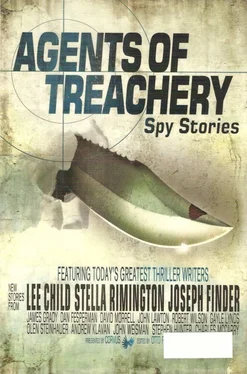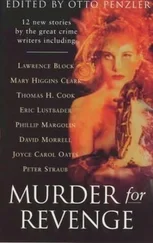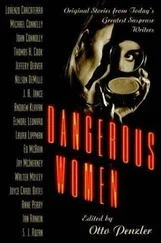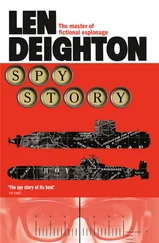After serving in deep cover with the CIA for a decade, Charles McCarry was a speechwriter for the Eisenhower administration before becoming an editor-at-large for National Geographic. He has often been described as the greatest American writer of espionage fiction, producing such poetic masterpieces as The Tears of Autumn, The Secret Lovers, and The Last Supper, all featuring his hero, Paul Christopher.
Although he has published more than thirty books, had David Morrell stopped writing after his first novel, his legacy would have been assured. First Blood introduced Rambo, who in books and Sylvester Stallone films has become one of the iconic American adventure heroes. Morrell also wrote The Brotherhood of the Rose, upon which NBC based what became the most-watched miniseries in history.
After more than three decades in all three branches of the British Secret Service (MI5)-counterespionage, countersubversion, and counterterrorism-Stella Rimington was named the first female Director-General of the agency, serving from 1992 to 1996; she was made a Dame Commander of Order of the Bath (DCB) the year she retired. Upon stepping down, she wrote a candid memoir, Open Secret, followed by five espionage novels.
Olen Steinhauer’s first novel, The Bridge of Sighs, began a five-book thriller series chronicling Eastern Europe during the Cold War, a decade at a time until the fall of communism. It was nominated for five mystery awards, including an Edgar, as was his fourth book, Liberation Movements. The film rights to The Tourist, his first nonseries novel, were acquired by George Clooney, who plans to star in the motion picture.
One of the rare authors who has been on the New York Times best-seller list for fiction and nonfiction, John Weisman cowrote Rogue Warrior, the real-life story of the navy’s elite counterterrorism unit of the SEALS and its commander, which was on the list for eight months, four weeks in the top spot. Five fictional sequels made the list. His books have twice been the subject of Mike Wallace episodes of 60 Minutes.
Portugal ’s neutrality in World War II is the background for Robert Wilson’s A Small Death in Lisbon, which won the (British) Crime Writers’ Association Gold Dagger as the best novel of 1999, and his spy thriller The Company of Strangers. He was nominated for another Gold Dagger for the first of four Javier Falcon novels set in Spain, The Blind Man of Seville.
The assignment given to the contributors to this unique collection was deceptively straightforward and simple: Write an international espionage or thriller story and set it anyplace in the world you like, in any era. No subject was forbidden, no word length specified, no political position denied, no philosophy advanced or hindered. The wide range of styles and focus contained herein will attest to the fact that the men and women who labored over these stories and produced such masterly tales accepted the invitation in the proper spirit.
THE END OF THE STRING by Charles McCarry
I first noticed the man I will call Benjamin in the bar of the Independence Hotel in Ndala. He sat alone, drinking orange soda, no ice. He was tall and burly-knotty biceps, huge hands. His short-sleeved white shirt and khaki pants were as crisp as a uniform. Instead of the usual third-world Omega or Rolex, he wore a cheap plastic Japanese watch on his right wrist. No rings, no gold, no sunglasses. I did not recognize the tribal tattoos on his cheeks. He spoke to no one, looked at no one. He himself might as well have been invisible as far as the rest of the customers were concerned. No one spoke to him or offered to buy him a drink or asked him any questions. He seemed poised to leap off his bar stool and kill something at a moments notice.
He was the only person in the bar I did not already know by sight. In those days, more than half a century ago, when an American was a rare bird along the Guinea coast, you got to know everyone in your hotel bar pretty quickly. I was standing at the bar, my back to Benjamin, but I could see him in the mirror. He was watching me. I surmised that he was gathering information rather than sizing me up for robbery or some other dark purpose.
I called the barman, put a ten-shilling note on the bar, and asked him to mix a pink gin using actual Beefeater’s. He laughed merrily as he pocketed the money and swirled the bitters in the glass. When I looked in the mirror again, Benjamin was gone. How a man his size could get up and leave without being reflected in the mirror I do not know, but somehow he managed it. I did not dismiss him from my thoughts, he was too memorable for that, but I didn’t dwell on the episode either. I could not, however, shake the feeling that I had been subjected to a professional appraisal. For an operative under deep cover, that is always an uncomfortable experience, especially if you have the feeling, as I did, that the man who is giving you the once-over is a professional who is doing a job that he has done many times before.
I had come to Ndala to debrief an agent. He missed the first two meetings, but there is nothing unusual about that even if you’re not in Africa. On the third try, he showed up close to the appointed hour at the appointed place: two a.m. on an unpaved street in which hundreds of people, all of them sound asleep, lay side by side. It was a moonless night. No electric light, no lantern or candle, even, burned for at least a mile in any direction. I could not see the sleepers, but I could feel their presence and hear them exhale and inhale. The agent, a member of parliament, had nothing to tell me apart from his usual bagful of pointless gossip. I gave him his money anyway, and he signed for it with a thumbprint by the light of my pocket torch. As I walked away I heard him ripping open his envelope and counting banknotes in the dark.
I had not walked far when a car turned into the street with headlights blazing. The sleepers awoke and popped up one after another as if choreographed by Busby Berkeley. The member of parliament had vanished. No doubt he had simply lain down with the others, and two of the wide-open eyes and one of the broad smiles I saw dwindling into the darkness belonged to him.
The car stopped. I kept walking toward it, and when I was beside it, the driver, who was a police constable, leaped out and shone a flashlight in my face. He said, “Please get in, master.” The British had been gone from this country for only a short time, and the locals still addressed white men by the title preferred by their former colonial rulers. The old etiquette survived in English, French, and Portuguese in most of the thirty-two African countries that had become independent in a period of two and a half years-less time than it took Stanley to find Livingstone.
I said, “Get in? What for?”
“This is not a good place for you, master.”
My rescuer was impeccably turned out in British tropical kit-blue service cap, bush jacket with sergeant’s chevrons on the shoulder boards, voluminous khaki shorts, blue woolen knee socks, gleaming oxfords, black Sam Browne belt. A truncheon dangling from the belt seemed to be his only weapon. I climbed into the backseat. The sergeant got behind the wheel, and using the rearview mirror rather than looking behind him, backed out of the street at breathtaking speed. I kept my eyes on the windshield, expecting him to plow into the sleepers at any moment. They themselves seemed unconcerned, and as the headlights swept over them they lay down one after the other with the same precise timing as before.
The sergeant drove at high speed through backstreets, nearly every one of them another open-air dormitory. Our destination, as it turned out, was the Equator Club, Ndala’s most popular nightclub. This structure was really just a fenced-in space, open to the sky. Inside, a band played highlife, a kind of hypercalypso, so loudly that you had the illusion that the music was visible as it rose into the pitch-black night.
Читать дальше












